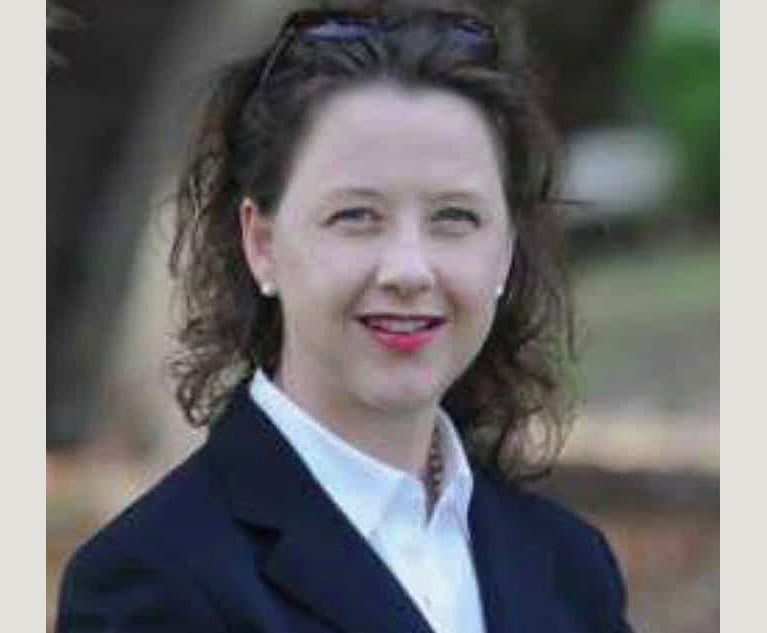Judge Excoriates US Justice Dept. for a 'House of Cards' False Claims Case
A federal magistrate judge has struck a key witness and ordered the U.S. Justice Department to pay legal fees to HCR ManorCare Inc., one of the country's largest providers of skilled nursing facilities, for alleged missteps in a case the government touted in the crackdown on fraud in the health care industry. “I don't think this case should have ever been brought,” a federal magistrate judge in Virginia said at a recent hearing. “I have looked at this stuff, and I'm appalled, I'm embarrassed, I'm ashamed that the Department of Justice would rely on this kind of nonsense." The government indicated this week it will appeal the decision.
November 03, 2017 at 01:15 PM
7 minute read
 U.S. Justice Department headquarters in Washington, D.C. Photo credit: Diego M. Radzinschi/ The National Law Journal
U.S. Justice Department headquarters in Washington, D.C. Photo credit: Diego M. Radzinschi/ The National Law Journal A federal magistrate judge has struck a key witness and ordered the U.S. Justice Department to pay legal fees to HCR ManorCare Inc., one of the country's largest providers of skilled nursing facilities, for alleged missteps in a case the government touted in the crackdown on fraud in the health care industry.
The Justice Department jumped into the whistleblower case in Alexandria, Virginia, federal district court in 2015, alleging Maryland-based ManorCare routinely submitted millions of dollars in reimbursements to the government for unnecessary therapy services. The government alleged a six-year nationwide scheme, starting in 2006, to maximize revenue. The company runs nearly 300 facilities across the country.
U.S. Magistrate Judge Theresa Carroll Buchanan of the Eastern District of Virginia last week lambasted government lawyers for bringing a False Claims Act case with an expert the judge said “must not be allowed to testify because of her utter lack of credibility.” Buchanan struck the expert's report, her deposition testimony and forbid her to testify about her review of medical records in the case.
“I don't think this case should have ever been brought,” Buchanan said at a hearing, according to a transcript. “I have looked at this stuff, and I'm appalled, I'm embarrassed, I'm ashamed that the Department of Justice would rely on this kind of nonsense by a nurse reviewer to get involved in a qui tam case and cost these defendants millions of dollars in legal fees.”
Two department lawyers involved in the ManorCare case deferred comment to a spokesperson, who declined to talk about the ruling. “The United States respectfully disagrees with Magistrate Judge Buchanan's ruling and will likely appeal it,” government lawyers said in a court filing on Thursday.
Reed Smith partner Eric Dubelier in Washington, a lead attorney for ManorCare, declined to comment on the ruling. A summary judgment hearing is scheduled for Nov. 9.
 Chad Readler, acting head of DOJ's Civil Division. Image: C-SPAN
Chad Readler, acting head of DOJ's Civil Division. Image: C-SPANThe False Claims Act is a powerful civil tool Main Justice regularly has used to target health care companies, pharmaceutical manufacturers and the mortgage industry. Last year alone Main Justice recovered nearly $5 billion through enforcement of the law. Chad Readler, the acting head of DOJ's Civil Division, told Congress in June that the amount marked the seventh consecutive year the department had recovered more than $3 billion.
Lawyers for corporate clients know the law as a “cash cow” for Main Justice, as two Mayer Brown partners called it in a blog post in September that looked at the pressure companies face to make a deal, or risk being sued and potentially paying a significant penalty.
“At least in the mortgage industry, allegations abound that the DOJ has abused its power by cajoling and pressuring settlements with questionable legal foundation on the bet that few want to be sued by the federal government,” Mayer Brown partners Krista Cooley and Laurence Platt wrote in their post.
The Justice Department in 2015 said “skilled nursing homes and rehabilitation facilities have also been fertile ground for civil fraud and false claims actions.” One company, Extendicare Health Services Inc., in 2014 agreed to pay $38 million to settle False Claims Act allegations rooted in the government's claims of providing “materially substandard nursing services that were so deficient that they were effectively worthless.”
ManorCare, DOJ Clash in Court
For months, the Justice Department and the Reed Smith team for ManorCare had fought over evidence related to the critical expert witness, Rebecca Clearwater. Central to the dispute was the Justice Department's belated disclosure of 131 pages of notes written by Clearwater, the government expert witness.
ManorCare's defense lawyers, pointing to omissions in Clearwater's three-day deposition in August, argued the case should be dismissed or that Clearwater shouldn't be allowed to testify. ManorCare's lawyers said the handwritten notes, which Clearwater did not disclose during her deposition, were “in certain material respects inconsistent” with the opinion she wrote in her report.
“DOJ's arrogant and cavalier attitude towards its discovery obligations in this case is no longer confined to fact discovery, but has also carried over to the experts upon whom DOJ's case completely relies,” ManorCare's lawyers wrote in a court brief last month. “At this point it hardly matters if DOJ is dishonest or incompetent, or both.”
The Justice Department, in a brief filed before last week's hearing, said Clearwater misunderstood what prosecutors meant by “notes” when they asked her for documents in discovery.
“DOJ inquired about notes taken during the review; however, at the time, Dr. Clearwater understood the requests for 'notes' to refer to notes of meetings and conversations with the nurse reviewers regarding the review. Dr. Clearwater did not seek clarification on this point, and DOJ was not aware of the misunderstanding,” prosecutors wrote.
The Justice Department described ManorCare's requests for sanctions as “extreme” and suggested holding another deposition of Clearwater. The production of the notes, prosecutors said, was not an example of the government ignoring its discovery obligations.
“Rather, recognizing its duty to produce such information,” prosecutors wrote, “the United States took steps to obtain and produce the notes as quick as possible when it learned of the notes' existence,” DOJ lawyers said in court papers.
At the Oct. 27 hearing, Allison Cendali, speaking for the Justice Department, told Buchanan “there was no bad faith on the part of the government. There was no bad faith on part of Dr. Clearwater.”
Buchanan, at the court proceeding, said she doubted Clearwater had misunderstood the request for her notes. She said it was “inconceivable and incredible” that Clearwater would not remember writing 131 pages of patient notes. “As I said, it's a whole—it's like writing a book. It's a whole notebook full,” the judge said at the hearing.
Buchanan called the Justice Department's case a “huge waste of money” and a “house of cards” that rested on Clearwater's testimony. She declined to dismiss the case but said she would award fees for the cost ManorCare incurred for bringing the motion for sanctions against the Justice Department.
Referring to prosecutors' proposal for another deposition, Buchanan said, “I understand the Department of Justice's inclination to try to somehow repair this, but I don't think that this is reparable.”
As the hearing ended, Buchanan said she wished she could award legal fees to ManorCare beyond the work in preparing the request for sanctions. “I cannot find a method for awarding those costs now, but I think that the defendants should be entitled to it because it's obvious that her deposition was a waste of time,” the judge said.
Mike Scarcella contributed reporting from Washington.
Read more:
Justices Pass Up False Claims Disputes, But More Cases Are in the Wings
Ex-Akin Gump Partner To Plead Guilty Over Plot To Sell Whistleblower Complaints
SEC's Whistleblower Chief Says Companies Heed Call Not to Silence Tipsters
This content has been archived. It is available through our partners, LexisNexis® and Bloomberg Law.
To view this content, please continue to their sites.
Not a Lexis Subscriber?
Subscribe Now
Not a Bloomberg Law Subscriber?
Subscribe Now
NOT FOR REPRINT
© 2025 ALM Global, LLC, All Rights Reserved. Request academic re-use from www.copyright.com. All other uses, submit a request to [email protected]. For more information visit Asset & Logo Licensing.
You Might Like
View All
Hogan Lovells, Jenner & Block Challenge Trump EOs Impacting Gender-Affirming Care
3 minute read
GOP-Led SEC Tightens Control Over Enforcement Investigations, Lawyers Say

SEC Sued for Failing to Reveal Records Involving Simpson Thacher Attorney
4 minute read
Ex-Prosecutor’s Trial Ends as Judge Throws Out Her Felony Indictment in Ahmaud Arbery Death Case
Trending Stories
- 1DeepSeek Isn’t Yet Impacting Legal Tech Development. But That Could Soon Change.
- 2'Landmark' New York Commission Set to Study Overburdened, Under-Resourced Family Courts
- 3Wave of Commercial Real Estate Refinance Could Drown Property Owners
- 4Redeveloping Real Estate After Natural Disasters: Challenges, Strategies and Opportunities
- 5Calif. Fires Should Serve as a Reminder to Fla.’s Commercial Landlords and Tenants Not to Be Complacent
Who Got The Work
J. Brugh Lower of Gibbons has entered an appearance for industrial equipment supplier Devco Corporation in a pending trademark infringement lawsuit. The suit, accusing the defendant of selling knock-off Graco products, was filed Dec. 18 in New Jersey District Court by Rivkin Radler on behalf of Graco Inc. and Graco Minnesota. The case, assigned to U.S. District Judge Zahid N. Quraishi, is 3:24-cv-11294, Graco Inc. et al v. Devco Corporation.
Who Got The Work
Rebecca Maller-Stein and Kent A. Yalowitz of Arnold & Porter Kaye Scholer have entered their appearances for Hanaco Venture Capital and its executives, Lior Prosor and David Frankel, in a pending securities lawsuit. The action, filed on Dec. 24 in New York Southern District Court by Zell, Aron & Co. on behalf of Goldeneye Advisors, accuses the defendants of negligently and fraudulently managing the plaintiff's $1 million investment. The case, assigned to U.S. District Judge Vernon S. Broderick, is 1:24-cv-09918, Goldeneye Advisors, LLC v. Hanaco Venture Capital, Ltd. et al.
Who Got The Work
Attorneys from A&O Shearman has stepped in as defense counsel for Toronto-Dominion Bank and other defendants in a pending securities class action. The suit, filed Dec. 11 in New York Southern District Court by Bleichmar Fonti & Auld, accuses the defendants of concealing the bank's 'pervasive' deficiencies in regards to its compliance with the Bank Secrecy Act and the quality of its anti-money laundering controls. The case, assigned to U.S. District Judge Arun Subramanian, is 1:24-cv-09445, Gonzalez v. The Toronto-Dominion Bank et al.
Who Got The Work
Crown Castle International, a Pennsylvania company providing shared communications infrastructure, has turned to Luke D. Wolf of Gordon Rees Scully Mansukhani to fend off a pending breach-of-contract lawsuit. The court action, filed Nov. 25 in Michigan Eastern District Court by Hooper Hathaway PC on behalf of The Town Residences LLC, accuses Crown Castle of failing to transfer approximately $30,000 in utility payments from T-Mobile in breach of a roof-top lease and assignment agreement. The case, assigned to U.S. District Judge Susan K. Declercq, is 2:24-cv-13131, The Town Residences LLC v. T-Mobile US, Inc. et al.
Who Got The Work
Wilfred P. Coronato and Daniel M. Schwartz of McCarter & English have stepped in as defense counsel to Electrolux Home Products Inc. in a pending product liability lawsuit. The court action, filed Nov. 26 in New York Eastern District Court by Poulos Lopiccolo PC and Nagel Rice LLP on behalf of David Stern, alleges that the defendant's refrigerators’ drawers and shelving repeatedly break and fall apart within months after purchase. The case, assigned to U.S. District Judge Joan M. Azrack, is 2:24-cv-08204, Stern v. Electrolux Home Products, Inc.
Featured Firms
Law Offices of Gary Martin Hays & Associates, P.C.
(470) 294-1674
Law Offices of Mark E. Salomone
(857) 444-6468
Smith & Hassler
(713) 739-1250








